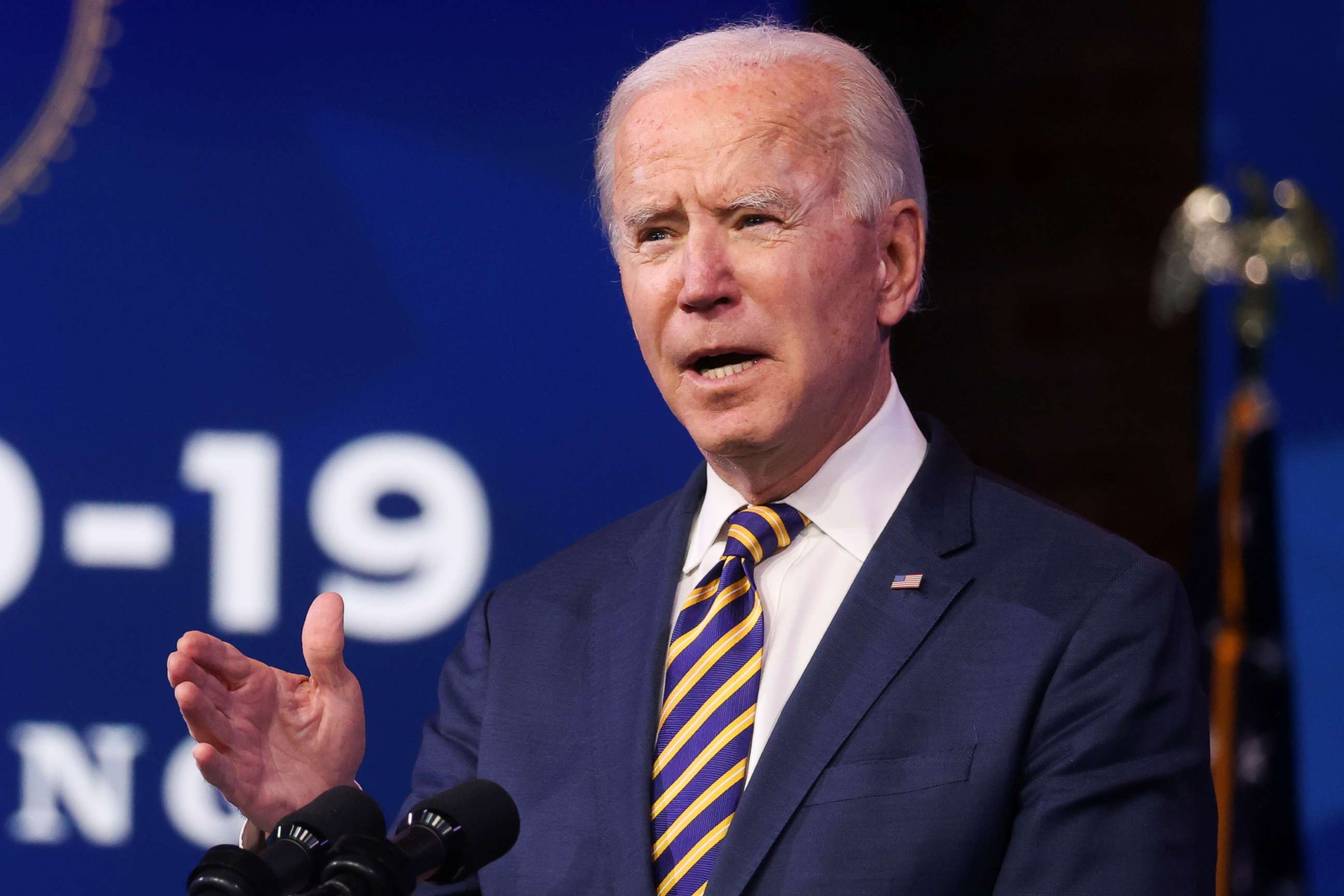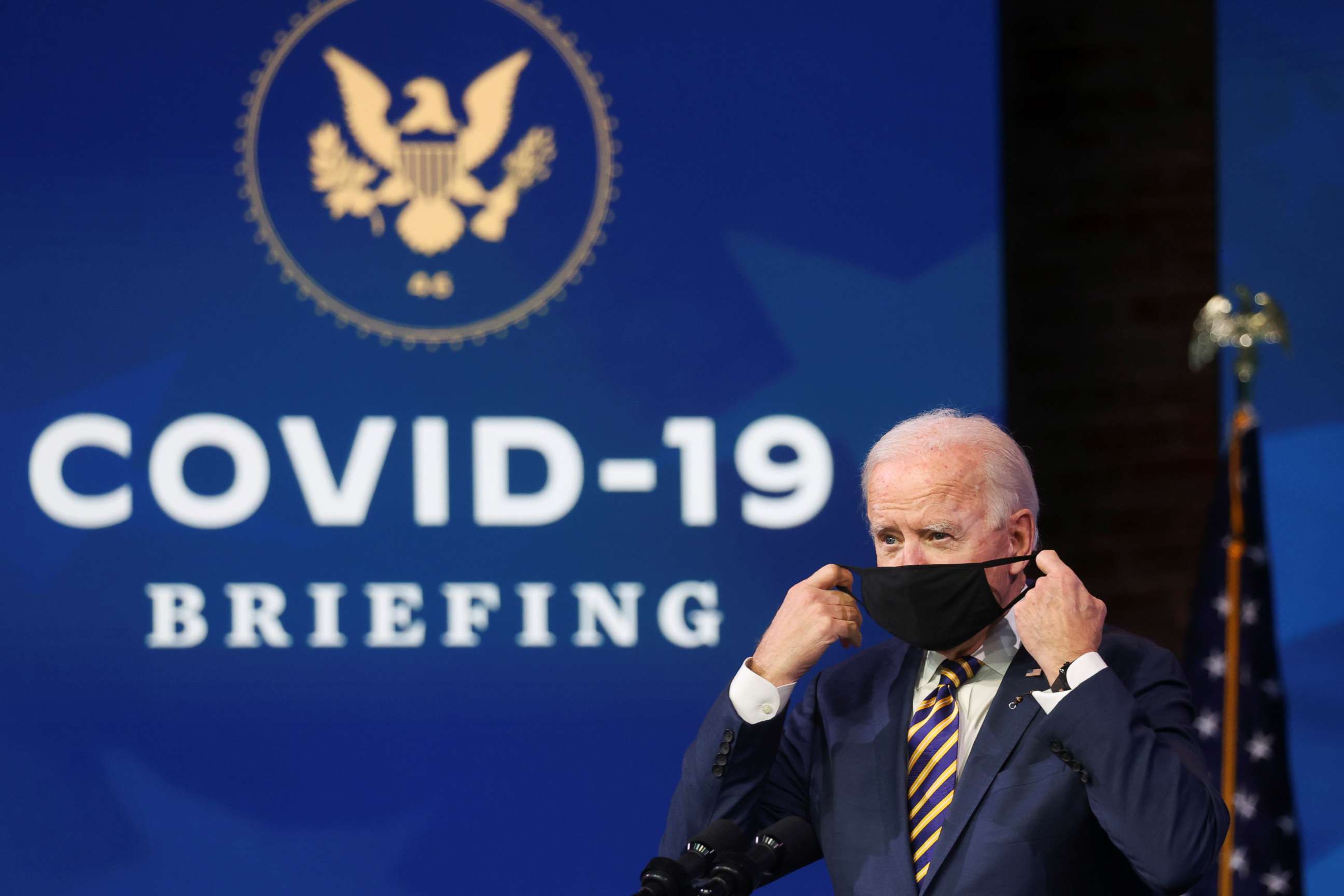President-elect Biden says he would set up federal COVID-19 vaccine centers
Biden said he could use FEMA to set up locations in rural areas.
President-elect Joe Biden said he wants to set up federal vaccination centers and make more money available to expand states' efforts as parts of a "more aggressive" approach to making COVID-19 vaccines available to the general public.
Biden said his administration could rely more on the Federal Emergency Management Agency as well as the military or National Guard to deploy clinics or set up mobile vaccination options.
"So I'm gonna need [Congress'] help in making sure that we establish thousands of federally run and federally supported community vaccination centers of various sizes across the country. Located in high school gyms or NFL football stadiums," Biden said, adding that the vaccination project has to involve multiple levels of the government.

Experts have suggested that vaccination sites in sports arenas or other large public locations could vaccinate more people more quickly than relying only on pharmacies, particularly in areas that have fewer medical resources. Biden said he wants federal sites to help expand access to the vaccine in rural areas where pharmacies or hospitals can sometimes be more difficult for people to get to.
Biden's White House coordinator for coronavirus response Jeff Zeints told the Washington Post the incoming administration plans a "whole of government response" that will tap every resource available to expand vaccinations, including making more money available to states, increasing the focus on reaching rural areas, and using the Defense Production Act to ramp-up production of any materials necessary to administer vaccines.

Biden criticized the current approach to vaccinating the vast majority of the country which has distributed more than 17 million doses of the Pfizer and Moderna vaccines but only 4.8 million people have received their first doses, according to Centers for Disease Control and Prevention's data on Wednesday. Biden called the inability of President Trump and Republican leaders to make more resources available to states, "criminal."
"There's no planning. The federal government has done virtually no planning. It's one thing to get a vaccination -- to get to get the actual vial -- sent to you in a frozen pack. It's another thing to get it into a needle and the vaccination into somebody's arm," Biden said.
Some public health and vaccine experts working on the efforts say too much federal intervention could create tension with state and local officials who know the needs of their area best. John Brownstein, chief innovation officer at Boston Children's Hospital and Harvard University professor, said a federal takeover probably wouldn't solve the current bottleneck in delivering vaccines.
"The goal is more to support the states than going around them because it's going to create unnecessary conflict if the federal government dictates how it's done," said Brownstein, an ABC contributor.
Experts say the incoming Biden administration can also help recruit staff to administer vaccines, set and enforce ambitious goals about the pace of vaccination, and help direct more vaccine doses to areas with more successful vaccination efforts.
ABC News' Molly Nagle and John Verhovek contributed to this report.